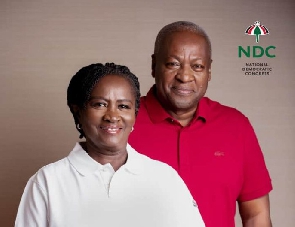Music of Thursday, 20 September 2007
Source: ghanamusic.com
Resurrecting the hi-life king…A royal voice singing from the grave
Until the intervention a few years ago, by Jonathan A. Hammond, all the history and folklore of Ga music seemed to be losing out on the recording charts and in the music shops.
The legendary exploits of E.T. Mensah, King Bruce and Nii Tei Ashitey’s Wulomei; valuable treasures in Ghanaian music heritage from earlier times through the 1960s and 1970s had, until recently, become endangered.
But now, people looking for all shades of music in Ga know there is a place to go. So from across the country and from Europe and America, Jonathan Hammond’s music shop at Katamanto in Accra has become the last search point for material by a long list of known as well as emerging Ga artistes.
The collections include works by Wulomei, Dzadzeloi, Suku Troupe, Bukom Ensemble, Ashiedu Keteke, Adane Best, Henry Abossey, Allan Family, Agash, Culture Imani Band, Adotey Tetor, Nii Djan, S.T., Kake Dance Ensemble, Unicorn International, Amarkwei Brock and several others.
Apart from securing the permission from owners to release out-of-print issues, Hammond is also responsible for a chunk of the new recordings by many of the current wave of artistes singing in Ga.
“It is important to have fresh input so I’m always snooping around for new artistes. It is not easy pursuing this line of work because there are frustrations and some of the musicians are difficult to deal with but I’m persevering so that Ga music, especially the traditional format, can be sustained.”
There was a golden era of Ga popular music in the 1960s. That was when E. T. Mensah and the Tempos Band, Blackbeats, Ramblers and other dance bands churned out beautifully-crafted pieces that were loved by all, whether they understood the language or not.
Then Wulomei came in with their folkloric approach in the early 1970s and their style caught on very quickly with similar setups being formed all over Accra. That was because it was much cheaper securing the kind of local instruments used for that kind of music than acquiring equipment for a typical dance band.
Sustaining Ga music has meant Hammond himself maintaining a strong determination to push on with an idea that crossed his mind in 1995 and which led him to produce Allan Family’s Daada Buko album on his Jaham Productions label.
His initial connection with music in the early 1990s was as a seller of recorded music on cassettes at the Tudu Lorry Park in Accra. He met Kojo Yeboah, Adomako Nyamakye’s producer in the course of business and learnt the ropes from him. When he felt ready for his first production, a friend led him to the Allan Family, a group specialising in kpanlogo, gome and other styles of Ga recreational music.
He has since then created recording opportunities for many artistes and has become well-versed in production procedures, sometimes even contributing song ideas for consideration by the musicians.
Despite his entrenchment in the Ga music field, Hammond says there had been moments when he had contemplated quitting music production.
“Some of the musicians start putting pressure on you for money the moment you finish recording, completely disregarding what the recording contract states. They begin to heap all their problems on you and that creates friction. New artistes also approach me regularly but I cannot take on everybody because resources are not limitless.”
These difficulties aside, Hammond still harbours a desire to see Ga music flourish. He keeps coming across interesting acts at La, Teshie, Nungua, Tema, Osu, Bukom and other locations in the Greater Accra Region and is considering starting an annual competition to showcase some of the best groups playing Ga traditional music.
He is also in talks with some venue owners to establish weekly shows for live music fans. He believes a couple more outlets in Accra can help make the music more accessible to interested fans.
“I want to explore as many avenues as possible to propagate Ga traditional music. Only a few radio stations appreciate the need to allocate some time for different kinds of music. I’m even considering the option of buying airtime on some stations solely for Ga music.”
Jaham Productions and the other big-time music producers in the system face similar problems in relation to piracy, payola and the fluctuating sales patterns.
They are all resorting to propping up their artistes with videos and sometimes through direct sales in the streets.
Ga songs don’t sell as fast as Twi materials where most of the producers invest. That means returns on investments by Jaham Productions take longer to accrue. Jonathan A. Hammond, however, says there’s no turning back for him now as far as promotion of Ga music is concerned.
“All the major players in music production and distribution know I’m the main source of recorded Ga music. They direct people to me all the time. I just have to persist and keep Ga music on the market.”










